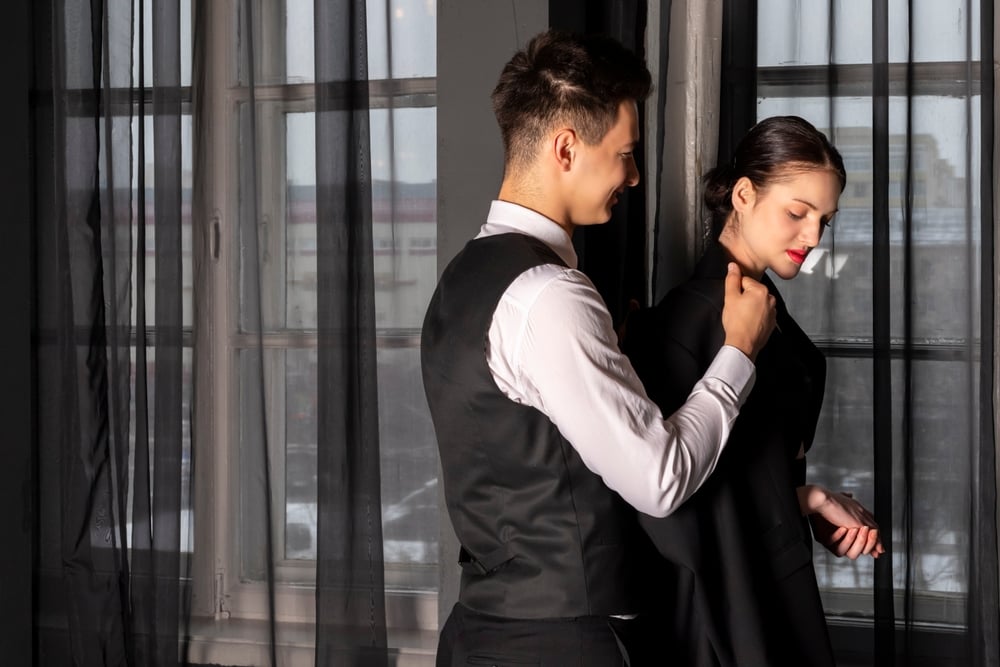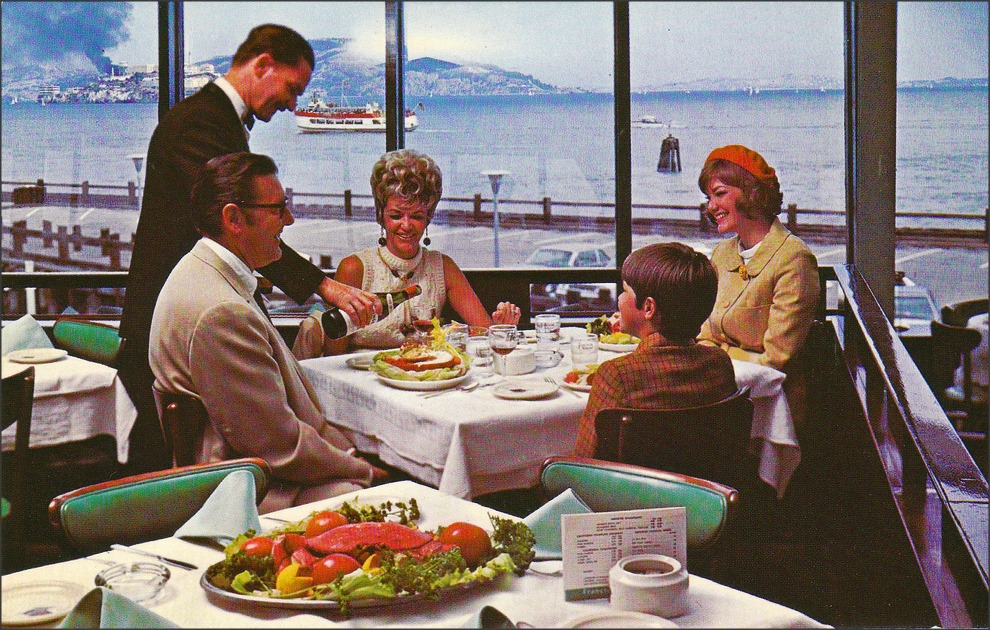Some traditions weren’t toxic—they were just thoughtful.

A lot of old-school chivalry gets mocked or dismissed these days, especially by folks who think every gesture of politeness must carry an outdated power dynamic. But not everything wrapped in tradition is oppressive. Sometimes it’s just good manners dressed in vintage clothing. There’s something comforting and even kind about small rituals that used to show care, respect, and attention—especially in romantic or social settings.
Plenty of “cancelled” chivalry scripts never deserved the backlash. They were about generosity, not domination. And while culture always evolves, tossing out every form of gentlemanly (or gentlewomanly) behavior hasn’t made things warmer or more connected. In fact, some of those lost scripts left behind a kind of emptiness—like we forgot how to show up for each other in subtle but meaningful ways. These aren’t rules to force on anyone, just reminders of gestures worth remembering.
1. Holding the door for someone isn’t sexist—it’s considerate.

There’s nothing inherently oppressive about holding a door open. Yet, this once-universal gesture got caught in the crossfire of gender politics, as if it implied weakness in the person on the receiving end. In reality, it’s just a small moment of awareness—of pausing your own motion to acknowledge someone else. That’s not condescending; it’s human. And it should go both ways. Women holding doors for men, younger folks pausing for elders—it’s about mutual respect, not hierarchy.
In fact, being thoughtful in these seemingly minor ways adds texture to our daily lives. Small acts of kindness, including gestures like holding doors or helping with bags, can have a surprising emotional impact and increase feelings of social connection, as reported by Art Markman of Psychology Today. We shouldn’t ditch civility because we fear someone will misread it. A little thoughtfulness doesn’t diminish anyone—it uplifts both people involved.
2. Walking on the street side of the sidewalk was about protection, not power.

This old tradition had a purpose. Men walking closest to the street wasn’t about posturing—it was a way of shielding someone from splashes, traffic, or general chaos. It’s less relevant in our clean, well-drained modern cities, sure, but the instinct behind it was solid: protect the person you’re with. The best chivalry came from care, not control. And honestly, it still feels nice when someone subtly moves to shield you from the elements without making a big show of it.
This kind of gesture tells someone, “I’ve got you”—no words necessary. And it’s not a gendered thing anymore. Anyone can offer that kind of quiet, physical consideration. Acts of subtle protection in relationships are still valued and often appreciated more than grand gestures, as stated by Audrey Gibbs and Gavi Klein at Ms. Magazine. Cancelling this tradition took away a practical and even romantic way of saying, “you matter.”
3. Paying for the first date wasn’t dominance—it was a gesture of goodwill.

Splitting the check makes sense in many situations, especially when dating roles are flexible and incomes vary. But the ritual of paying for a first date wasn’t always about control—it often came from a genuine desire to make the other person feel cared for and hosted. A first date can be awkward. Someone stepping up to cover the meal used to signal, “I’m invested, and I want you to enjoy this.”
That doesn’t mean it has to be a rule. But dismissing the gesture as outdated misses the point. It was never about ownership—it was about effort. Majority of both men and women prefer when one person pays on a first date, often viewing it as an expression of intentionality and maturity, as per Santul Nerkar of The New York Times. There’s nothing wrong with shared expenses—but there’s still room for generous instincts too.
4. Offering a jacket in the cold was a sweet, selfless move.

There’s a bit of old romance in the simple act of giving someone your coat. And no, it wasn’t about suggesting the other person was fragile. It was about empathy—seeing someone shivering and instinctively wanting them to feel warmer, even if it meant being a little colder yourself. That’s the heart of kindness. In today’s world of “handle your own needs,” this gesture feels almost rebellious in its softness.
Somehow we’ve framed too much caring as weakness. But giving up a small comfort for someone else is brave in its own right. And it’s not limited to dates—friends and strangers deserve those kinds of thoughtful moments too. We don’t need to be so cautious about appearing too nice. If your first instinct is to share what you have, that’s a good thing, not something to second-guess.
5. Standing when someone enters a room used to signal respect.

This one’s been mostly relegated to old films and formal dinners, but there’s something powerful in the act of standing when someone walks in—especially if they’re elderly, important to you, or arriving into a group setting. It’s not groveling. It’s a gesture that says, “Your presence matters.” In a culture obsessed with casual vibes, we might have lost track of how meaningful intentionality can be.
Standing up for someone isn’t just about respect; it creates a brief pause, an honoring of the moment. Even doing it at home—when your partner or parent gets home after a long day—can reset the dynamic in a sweet way. These rituals don’t need to be mandatory or forced. But when done sincerely, they bring back a sense of occasion that’s mostly gone missing.
6. Helping someone carry a heavy load didn’t mean you thought they were weak.

There’s a difference between assuming someone can’t do something and simply offering help because you can. Carrying groceries, lifting luggage, moving a box—it’s not about power plays. It’s just noticing that someone might benefit from a hand. If we’ve become too afraid to offer help because we think it might be “offensive,” we’ve let our good instincts get tangled up in ego and fear.
Most people don’t mind being helped when it’s offered kindly and without strings. And that’s the spirit chivalry once had—it wasn’t about showcasing superiority, it was about noticing someone’s needs without them having to ask. Being proactive in kindness shouldn’t be embarrassing. It should be encouraged.
7. Walking someone to their door showed care and follow-through.

You’ve just had a nice evening. Do you wave goodbye from the car, or walk them to the door? That last little bit of effort used to mean something. It was a way to end the night with a small act of presence, not a disappearing act. Somehow, in the age of texts and ghosting, this kind of thoughtful follow-through feels almost radical.
Walking someone to the door isn’t about surveillance or control. It’s about respect, safety, and ending a moment well. Even if nothing romantic is happening, it’s still a nice way to say, “I’m here with you—until the very end of the evening.” That’s rare now, but it doesn’t have to be.
8. Complimenting someone respectfully shouldn’t be taboo.

Not every compliment is creepy. Some are just kind. Telling someone they look nice, they did a great job, or that their energy lights up a room—those aren’t loaded statements when they’re sincere and not layered with weird innuendo. Yet too many people feel awkward giving or receiving compliments, as if every one is a trap.
We’ve overcorrected. There’s still room in the world for positive attention that isn’t transactional. A well-timed compliment can brighten someone’s entire day. That’s not something we should cancel; it’s something we should relearn—without the weirdness, just with kindness.
9. Apologizing first wasn’t weakness—it was strength and leadership.

There’s real strength in being the first to say, “I’m sorry.” In the chivalrous code, this was seen as noble—a way of de-escalating tension, preserving the relationship, and modeling accountability. Today, too many folks confuse stubbornness with strength. But stepping forward to repair something first is often the bravest move of all.
It doesn’t mean taking all the blame or erasing your side of things. It just means you value peace more than pride. And in most relationships—romantic or otherwise—those who apologize first tend to lead with emotional intelligence, not submission. It’s time to bring that version of bravery back.
10. Calling instead of texting used to show real attention.

Texting is easy. Too easy. It allows people to stay connected in a half-present kind of way. But a phone call—especially one made just to check in or hear someone’s voice—used to mean something more. It said, “You matter enough for me to pause and be fully here.” That kind of attention got lost somewhere between convenience and avoidance.
Chivalry used to include attentiveness. Making space for real connection. Calling someone just to say goodnight, or to hear about their day, didn’t require a special occasion. It just required care. Bringing that back might feel vulnerable—but that’s kind of the point.
11. Giving up your seat was a quiet act of selflessness.

On the subway, in a waiting room, at a crowded event—giving up your seat for someone older, pregnant, tired, or carrying a child was once automatic. Now, people bury their faces in their phones and pretend not to notice. But that gesture? It said, “I see you. You matter more than my comfort for the next ten minutes.”
It wasn’t about guilt or rules. It was about noticing someone else’s humanity in real time. That kind of awareness is desperately needed, not outdated. And the good news? You can still offer your seat. You can still be that kind of person.
12. Waiting until everyone is served before eating showed restraint and thoughtfulness.

There was something quietly elegant about waiting until everyone at the table had their food before digging in. It created a shared moment. A pause. A sense that we’re in this together—not just stuffing our faces at the first chance. That kind of dining etiquette wasn’t about snobbery; it was about community.
Even in casual meals, the habit of pausing—of acknowledging others—says something. It slows us down, adds intention, and keeps us from disappearing into our individual appetites. In a world obsessed with speed and self, small courtesies like this offer a reset.
13. Saying “ladies first” was a symbolic gesture of honor.

Sure, it’s a bit old-fashioned. But “ladies first” wasn’t born out of condescension—it came from a place of showing honor and creating space. In today’s equality-driven culture, it may feel awkward or unnecessary, but the original intent wasn’t about exclusion. It was about respect.
Used with grace and not as a joke or mandate, this phrase still has a gentle kind of charm. It doesn’t need to dominate social rules anymore—but it also doesn’t need to be erased from existence. Chivalry, at its best, simply invited us to treat each other like we matter. And honestly, the world could still use a little more of that.
